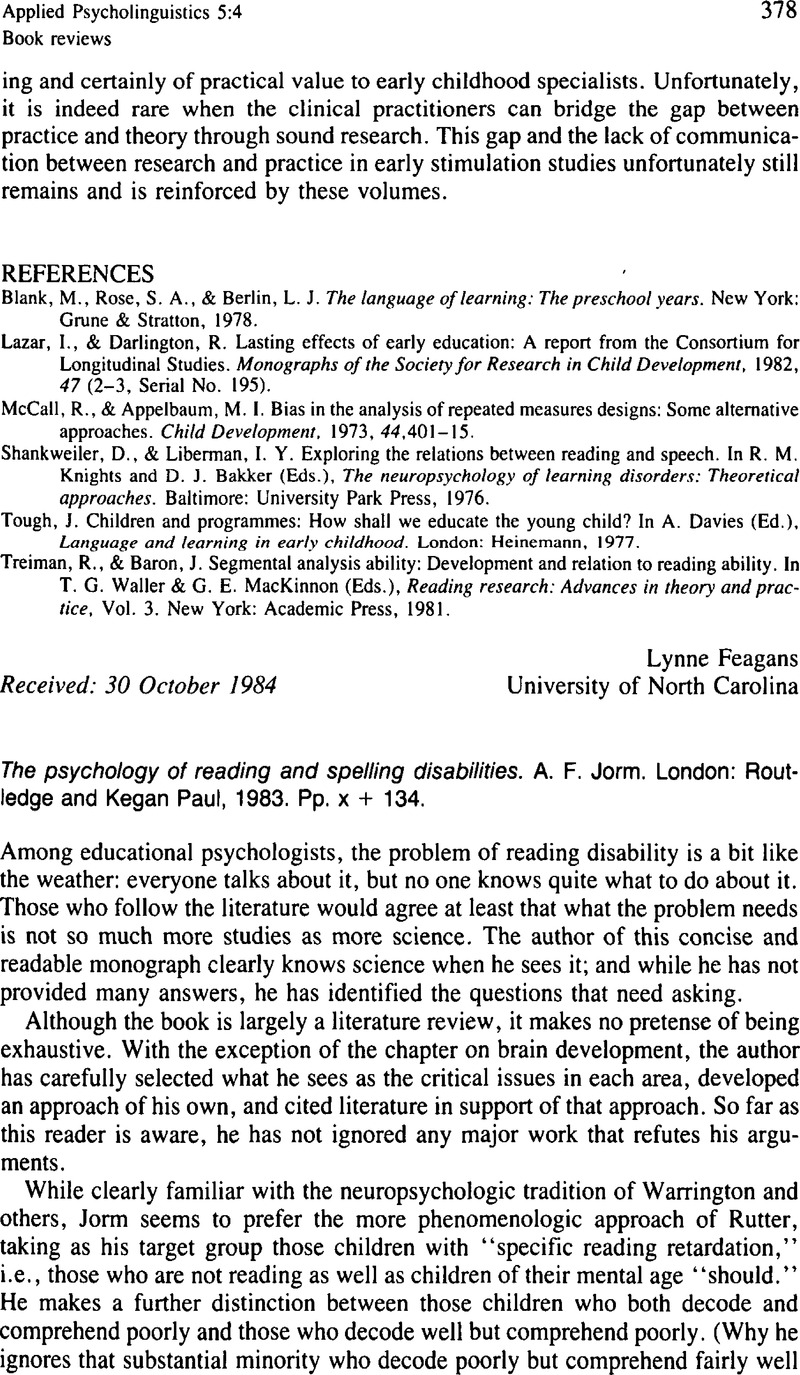No CrossRef data available.
Article contents
The psychology of reading and spelling disabilities. A. F. Jorm. London: Routledge and Kegan Paul, 1983. Pp. x + 134.
Published online by Cambridge University Press: 28 November 2008
Abstract
An abstract is not available for this content so a preview has been provided. Please use the Get access link above for information on how to access this content.

- Type
- Book Reviews
- Information
- Copyright
- Copyright © Cambridge University Press 1984
References
REFERENCES
Belmont, L., & Birch, H. G.Lateral dominance, lateral awareness, and reading disability. Child Development, 1965, 36, 57–71.CrossRefGoogle ScholarPubMed
Duffy, F. H., Denckla, M. B., Bartels, P. H., & Sandini, G.Dyslexia: Regional differences in brain electrical activity by topographic mapping. Annals of Neurology, 1980, 7, 412–20.CrossRefGoogle ScholarPubMed
Galaburda, A., & Kemper, T. L.Cytoarchitectonic abnormalities in developmental dyslexia: A case study. Annals of Neurology, 1979, 6, 94–100.CrossRefGoogle ScholarPubMed
Golden, G. S.Neurobiological correlates of learning disabilities. Annals of Neurology, 1982, 12, 409–18.CrossRefGoogle ScholarPubMed
Rosenberger, P. B.Visual matching and clinical findings among good and poor readers. American Journal of Disorders of Childhood, 1970, 119, 103–10.Google ScholarPubMed


